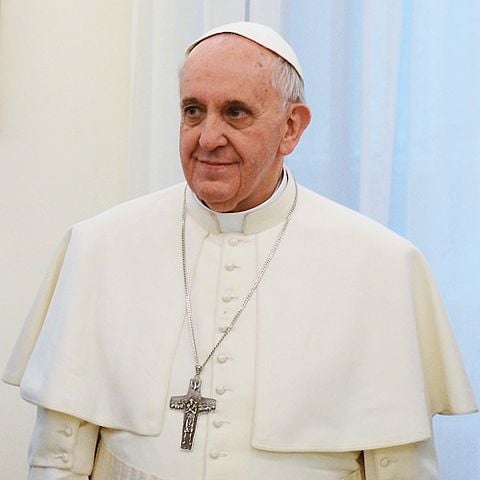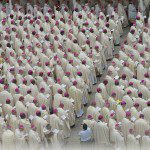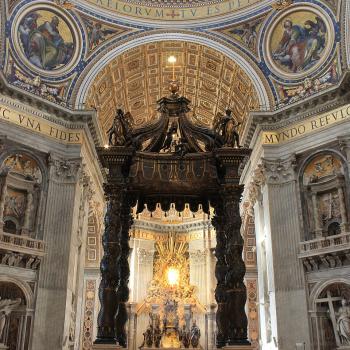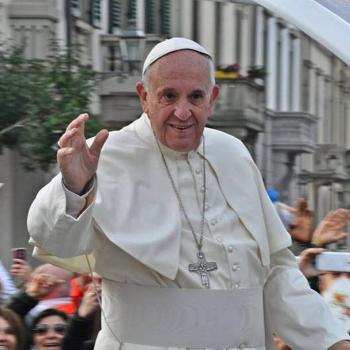
Pope Francis’ Angelus today was especially touching. John the Baptist pointed out Jesus to two of his followers and they turned and began to follow Jesus, instead. Jesus turned to them and asked, “Whom do you seek? They gave what sounds like a strange reply. “Where are you staying?” they asked Our Lord.
Jesus didn’t answer them directly. Instead, He merely said, “Come and see.”
Here is Pope Francis’ take on this Gospel passage:
Jesus does not respond: “I live in Capernaum, or in Nazareth”, but says: “Come and see” (v. 39). Not a calling card, but an invitation to an encounter. The two follow him and remain with him that afternoon. It is not difficult to imagine them seated, asking him questions and above all listening to him, feeling their hearts inflamed ever more while the Teacher speaks. They sense the beauty of the words that respond to their greatest hope. And all of a sudden they discover that, as evening was drawing around them, the light that God alone can give was exploding within their hearts. One thing catches our attention: 60 years later, or perhaps more, one of them would write in his Gospel: “it was about four in the afternoon” (cf. Jn 1:39) — he wrote the time. And this is one thing that makes us think: every authentic encounter with Jesus remains alive in memory; it is never forgotten. You forget many encounters, but a true encounter with Jesus remains forever. And many years later, those two even remembered the time. They were unable to forget this encounter that had changed their lives and was so happy and so complete. Then, when they leave from that encounter and return to their brothers, that joy, that light overflows from their hearts like a raging river. One of the two, Andrew, says to his brother, Simon — whom Jesus will call Peter when He meets him — “We have found the Messiah” (v. 41). They left sure that Jesus was the Messiah, certain.
Let us pause for a moment on this experience of the encounter with Christ who calls us to remain with him. Each one of God’s calls is an initiative of his love. He is the one who always takes the initiative. He calls you. God calls to life, he calls to faith, and he calls to a particular state in life: “I want you here”. God’s first call is to life, through which he makes us persons; it is an individual call because God does not make things in series. Then God calls us to faith and to become part of his family as children of God. Lastly, God calls us to a particular state in life: to give of ourselves on the path of matrimony, or that of the priesthood or consecrated life. They are different ways of realizing God’s design, the one he has for each of us that is always a design of love. God always calls. And the greatest joy for every believer is to respond to this call, offering one’s entire being to the service of God and our brothers and sisters.













